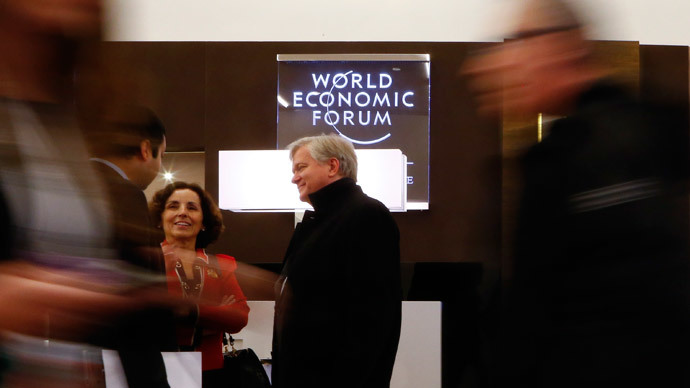How the super-rich deal with social inequality?

As social inequality is increasing, the rich look to protect their wealth and many invest in supporting candidates who’d lighten their regulatory and tax burden, Robert Johnson President of Institute of New Economic Thinking told RT.
Increasing social inequality was discussed at the Davos forum last week where leaders came to the conclusion that not enough is being done to close the fast-growing income gap. It seems that together with social tensions this is making the wealthy increasingly nervous.
RT:You've said the richest of the rich are so nervous they're looking at ways to protect their wealth. Why's that?
Robert Johnson: I think many people don’t see a coherent design in the international system or within nations.. We see very substantial unrest, some of it race-related in the US, but inequality is getting more and more severe all over the world. So I think when people see the essence of order, when they see a future, they have a faith in the system and they continue to play. When they think it might be cracking up – they try to figure out how to protect themselves.
RT:What steps are the super-rich taking?
RJ: Well I don’t have particular access to any individuals, but I do hear how they say on the Upper East Side in New York at various parties and so forth people talk about their own airplane with their own pilot, …he and his family will be protected by building airstrips, buying compounds like farms in New Zealand as a place to evacuate to. Others I understand are buying protection from private security forces that could airlift in and take you out of a city that’s in turmoil. So these kinds of concerns seem to be building in the unrest that we had in New York City in the last part of 2014 seems to underscore or catalyze some of these conversations.
RT:Why do we see social inequality increasing even in the richest states?
RJ: I think you are seeing that for a number of reasons. Number one, when globalization takes hold over the last 20 years, there is a very large increase in the labor force and just standard economic theory will tell you that relative compensation of labor would go down. But that’s not this really bad thing. I mean God wasn’t necessarily born in Pittsburgh or Detroit. We’re seeing inequality narrow between nations but widen within nations. The second dimension is technology. Who is it that makes the investment decisions? It’s the people at top management who are wealthy and powerful and they are intensifying their control. And that has gone on and on throughout history. But sometimes the innovations do tend to go against that grain the other way. But right now they seem to be essentially replacing the middle class with smart machines. Third dimension, very important, rich people invest in politics, in a system like the US, and increasingly the other Western democracies. People invest money in supporting candidates who’d lighten their regulatory burden and lower their tax burden and…lower the social wage, the infrastructure that the very wealthy and powerful have to participate in paying for.
READ MORE: 'Davos people – source of economic problems, not a solution'
RT:Is anyone with real money ready to do something about rising inequality do you think?
RJ: I think there are a lot of wealthy people who have a social conscience, who are concerned. But there is a sense right now even among the wealthy that they are powerless. They know how to protect themselves, they know how to get out of harm’s way, they know how not to have their money expropriated. But they don’t know how to band together and impart a new design for the social good. I know a lot of wealthy people who are not only frightened, but very upset about what’s happening in the Western democracies and they would like to see a more progressive change and they are happy to participate. But they don’t see, which I might say, is the critical mass in politics moving us in that direction.
The statements, views and opinions expressed in this column are solely those of the author and do not necessarily represent those of RT.
The statements, views and opinions expressed in this column are solely those of the author and do not necessarily represent those of RT.












